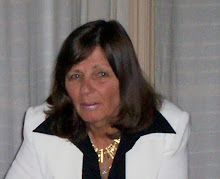Effective Learners
Students and teachers will understand that learning is a lifelong process and that the pace of technological change requires us to focus on learning how to learn, rather than learning specific tools. It is expected that neither students nor teachers will know how to use every available tool, rather that they will be comfortable learning how to use new tools independently.
Independent learning requires that student and teachers are able to evaluate information for authenticity, relevance and bias as well as evaluate tools for applicability and effectiveness. As independent learners, teachers and students will be able to filter out unimportant stimuli and information so that they can focus on the important and useful, to be able to navigate graphical interfaces as well as different types of text and media formats.
Lifelong learners are reflective, they routinely practice metacognition to think about how and why they understand what they do, and they constantly strive to look deeper at their own thinking, processes and practices. Lifelong learners are intrinsically motivated to better understand the world around them and to use that knowledge for self-improvement.
Effective Collaborators
Students and teachers will develop the behaviors, attitudes and dispositions required for working in partnership with others, whether in person or over distances. Global collaboration requires effective communication, social and cultural awareness, and flexibility. Effective collaborators actively take responsibility for their role, and are able to delegate or share responsibility when necessary. Effective collaborators are equally comfortable as either leaders or participants. Effective collaborators appreciate and internalize the essential interdependence of all human endeavors.
Effective Creators
Students and teachers will understand that an essential component of lifelong learning is analyzing, synthesizing and applying what they’ve learned to make an original contribution to society. Effective creators are critical thinkers who are able to “think outside the box” and analyze systems to identify and solve problems. Effective creators are constantly innovating and routinely use metacognition skills to evaluate and improve their own work. Effective creators are goal oriented, using time management and multitasking skills in order to work at their highest level of productivity. Effective creators understand that, as members of an interdependent society, their work must adhere to standards of ethics and social responsibility.
This is certainly relevant to us as educators.
Something else I found interesting was what a 14 year old pupil thinks about the use of Web 2.
And on teachertube.com a video on Web 2 in the classroom: where does it fit in?

 Web site: http://ictineducation.webege.com/
Web site: http://ictineducation.webege.com/










No comments:
Post a Comment